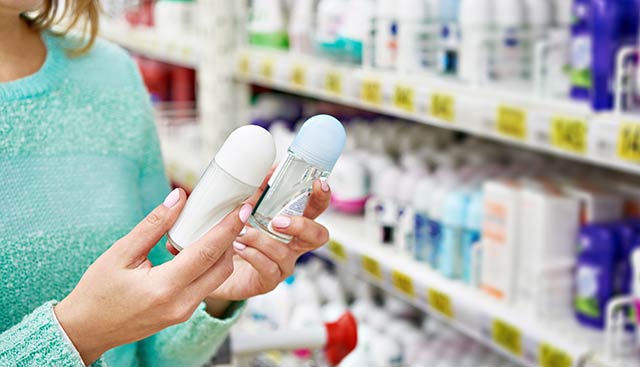You put on your clothes, cleaning your teeth, and left the house for the day. But, to your surprise, you discovered you had forgotten to apply デオドラント. Then the anxious perspiration began. Feeling deodorant-free might feel similar to going nude.
Raise your hand if you’ve been there before. And if that’s where you’re at right now, maybe hold off on raising your hand.
Many Americans’ hygiene regimes now include deodorants and antiperspirants. Many deodorants and antiperspirants, like shampoo, body wash, shaving cream, toothpaste, and lipstick, are produced with compounds that are difficult to name and may leave you scratching your head.
You’ve undoubtedly heard that some chemicals included in deodorants and antiperspirants might cause breast cancer, renal problems, and allergies. Is it, however, true or merely speculative?
Can Deodorants Cause Breast Cancer, Kidney Disease, Allergies, and Other Problems?
One of the most concerning assertions regarding the health implications of deodorant is that there is a correlation between デオドラントand breast cancer. Some individuals are concerned that some antiperspirant chemicals will be absorbed through the skin, particularly after shaving.
Toxins, according to the notion, will concentrate in the lymph nodes and transform healthy cells into cancer cells. Many individuals believe that this is why certain breast tumours originate in antiperspirant-exposed regions.
Other allegations include deodorant causing renal illness and allergies.
However, the American Cancer Society determined that assertions associating breast cancer and deodorants lack scientific support, and the National Kidney Foundation warns only patients with severely impaired kidney function about the health dangers of using antiperspirants.
Aluminum compounds are widely utilized in cosmetics and pharmaceuticals. Aluminum salts are the components in antiperspirants that inhibit perspiration. To prevent perspiration from accumulating on the surface of your pores, the salts must dissolve.
Does this, however, imply that dissolved aluminum salt will be absorbed and retained in your body?
A recent study released by the National Center for Biotechnology Information reveals that using antiperspirants on a regular basis can cause aluminum to accumulate in breast tissue, however, this does not establish that aluminum salts cause breast cancer.
Breast cancer tissue does not appear to contain any more aluminum than normal breast tissue.
“Aluminum may be of more concern if you have renal difficulties, particularly if your kidney function is less than 30%.” Benjamin Chan, DO, a doctor at Penn Family Medicine Phoenixville, agrees. “Too much aluminum in your body might induce bone disorders or dementia,” Dr. Chan added. Excess aluminum is normally removed from your body by your kidneys. As a result, those with impaired renal function cannot filter aluminum quickly enough. However, if you have an adequate renal function, your kidneys can generally handle the amount of aluminum received via your skin from antiperspirants and cosmetics.”
This is why the Food and Drug Administration (FDA) in the United States mandates antiperspirant makers to include special warnings for patients with the renal illness.
Parabens
Parabens are used to inhibit the growth of fungus, germs, and yeast on deodorant.
Parabens may be absorbed via the skin, and once in your body, they can act like estrogen, a female hormone vital for sexual development, breast health, and other physical processes. A higher lifetime estrogen exposure may also raise your chance of developing breast cancer. The effect of Parabens in cosmetic goods, on the other hand, is minimal and not nearly enough to raise your risk of breast cancer.
Scientists at the FDA have found no evidence that Parabens used in cosmetic items such as デオドラントcause breast cancer.
Allergies and Other Ingredients
“Some persons are allergic to deodorants and antiperspirants. According to Dr. Chan, “research shows that substances such as propylene glycol (a chemical that gives a deodorant stick its form), essential oils (often used in scent), biological additives, Parabens, vitamin E, and lanolin” might be to blame.
With so many potential causes, determining which chemical is causing an allergic response might be difficult. If you know you’re allergic to any of these components, talk to your doctor about the risks of using deodorant.
